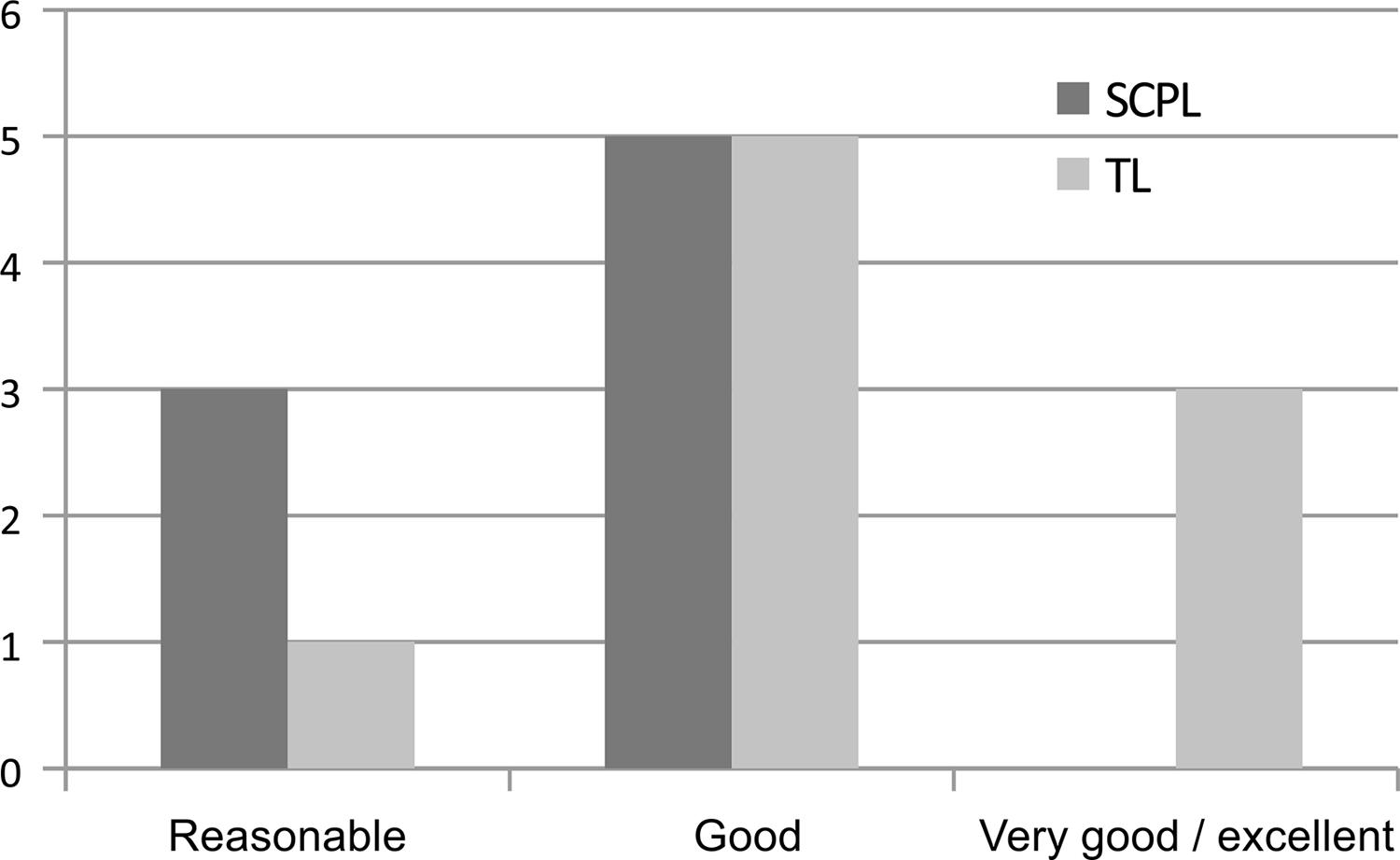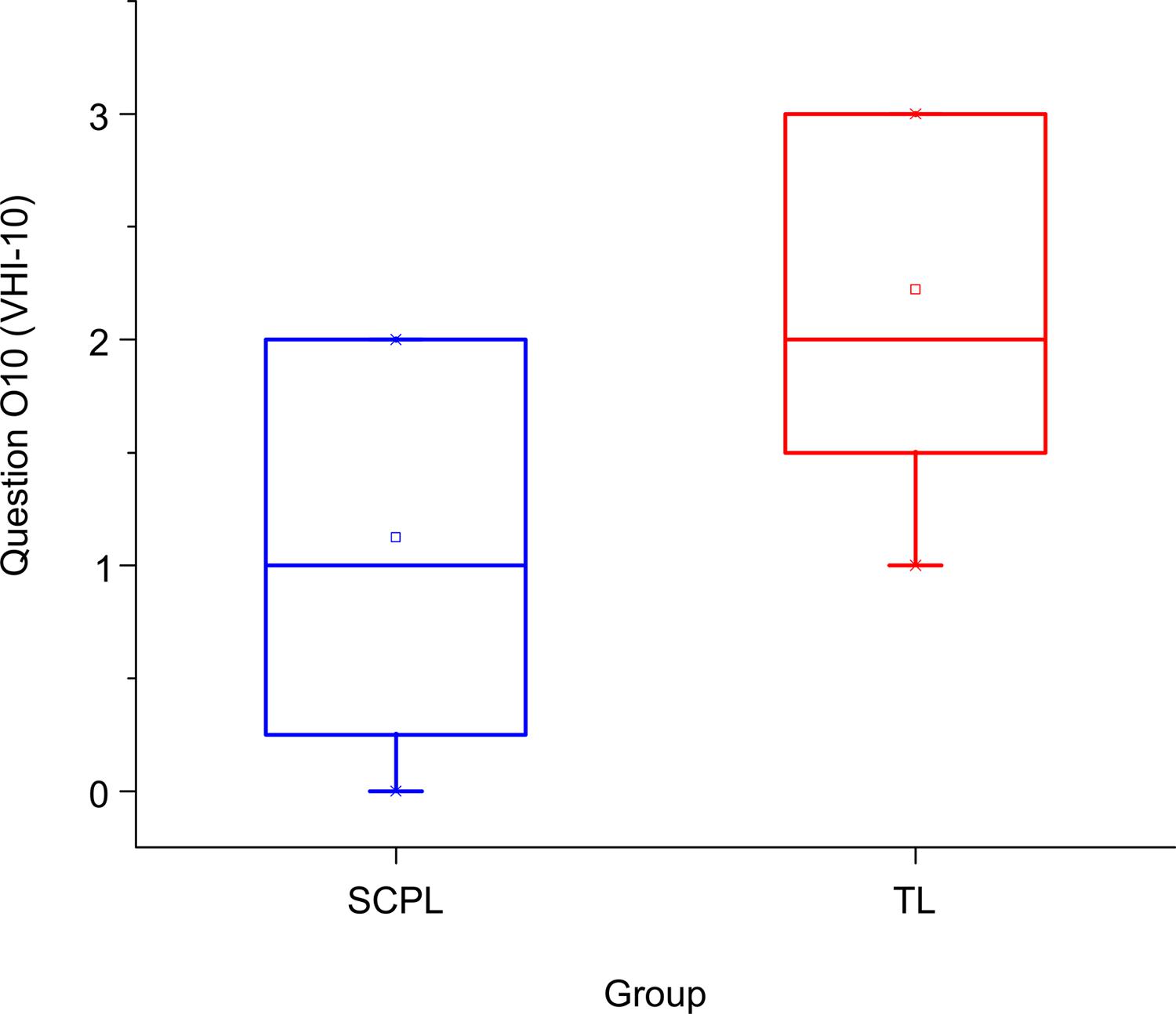ABSTRACT
Introduction
The laryngeal cancer treatment causes significant changes in the quality of life.
Purpose
To assess and compare the vocal handicap and the coping strategies to deal with the vocal handicap resulting from supracricoid and total laryngectomy.
Methods
Analytical, prospective observational study of groups of subjects with the same disease. Seventeen subjects were assessed and divided in two groups; the first with eight male subjects submitted to supracricoid partial laryngectomy, with cricohyoidoepiglottopexy, mean age of 67,5; and a second group with nine subjects, two women and seven men, submitted to total laryngectomy, mean age of 64,3. All subjects answered the Vocal Handicap Index-10 (VHI-10) and the Coping Strategies in Dysphonia Protocol (PEED-27).
Results
The mean values of raw scores obtained with the VHI-10 by the two groups did not reveal significant differences, matching studies involving dysphonic patients. Both groups use an elevated number of coping strategies for vocal problems: the first group presented mean raw scores of 65,75 and the second group, 59,22.
Conclusion
The comparison between subjects submitted to supracricoid laryngectomy and total laryngectomy does not evidence differences concerning the self-assessment of voice, vocal handicap and coping strategies to deal with vocal problems. Both groups use more than the double of coping strategies for vocal problems, with a predominant focus on emotion.
Voice; Dysphonia; Quality of life; Laryngectomy; Self concept

 Subtitle: SCPL = Group of subjects submitted to supracricoid partial laryngectomy; TL = Group of subjects submitted to total laryngectomy
Subtitle: SCPL = Group of subjects submitted to supracricoid partial laryngectomy; TL = Group of subjects submitted to total laryngectomy
 Subtitle: SCPL = Group of subjects submitted to supracricoid partial laryngectomy; TL = Group of subjects submitted to total laryngectomy
Subtitle: SCPL = Group of subjects submitted to supracricoid partial laryngectomy; TL = Group of subjects submitted to total laryngectomy
 Subtitle: SCPL = Group of subjects submitted to supracricoid partial laryngectomy; TL = Group of subjects submitted to total laryngectomy
Subtitle: SCPL = Group of subjects submitted to supracricoid partial laryngectomy; TL = Group of subjects submitted to total laryngectomy